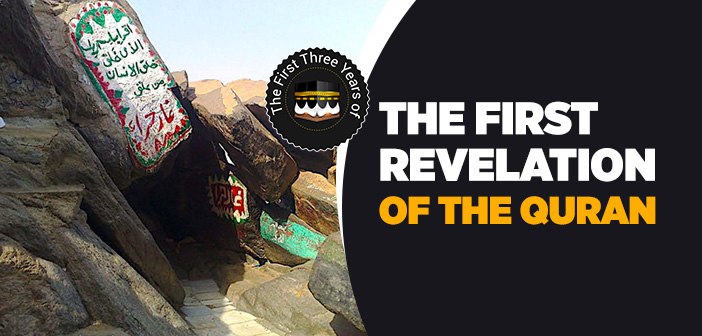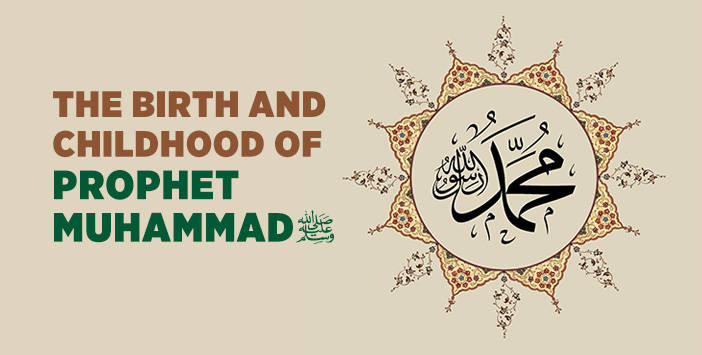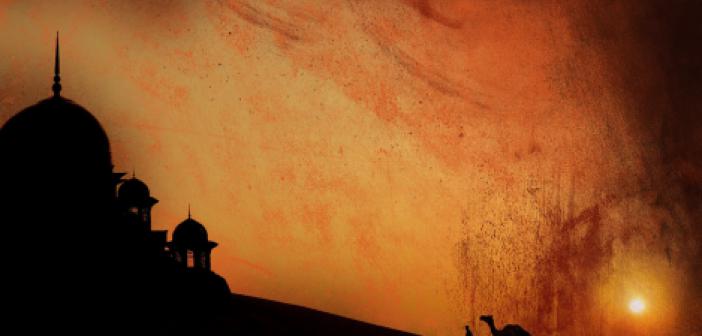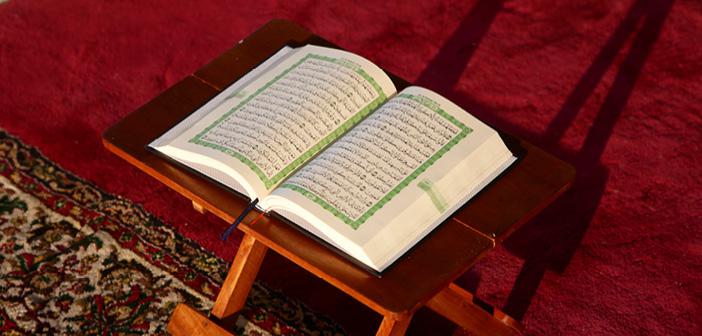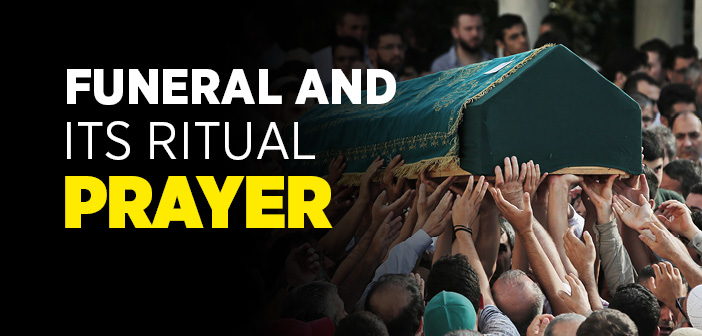
THE WİSDOM BEHİND THE BLESSED PROPHET
The Wisdom behind the Blessed Prophet -upon him blessings and peace- being an Ummi...
The word ummi harbors a variety of meanings, denoting one who has remained pure and unsullied like a newborn, or is unlettered without having received any formal education, as well as signifying Meccans or, in general, the Arabs, with the exception of the People of the Book residing in Arabia.
On the words of the Quran, the Noble Messenger -upon him blessings and peace- was an ummi, that is he was unlettered, knowing neither how to read nor write.
Thus states the ayah:
الَّذِينَ يَتَّبِعُونَ الرَّسُولَ النَّبِيَّ الأُمِّيَّ الَّذِي يَجِدُونَهُ مَكْتُوبًا عِندَهُمْ فِي التَّوْرَاةِ وَالإِنْجِيلِ
“Those who follow the Messenger-Prophet, the Ummi, whom they find written down with them in the Taurat and the Injeel” (al-Araf, 157)
That the Messenger of Allah was unlettered was something also known to the idolaters of the time, who, on the testimony of the Quran, would accordingly allege:
وَقَالُوا أَسَاطِيرُ الْأَوَّلِينَ اكْتَتَبَهَا فَهِيَ تُمْلَى عَلَيْهِ بُكْرَةً وَأَصِيلًا
“They claimed: Stories of the ancients—he has got them written, and these are read out to him morning and evening” (al-Furqan, 5)
The reasons why the Blessed Prophet -upon him blessings and peace- was called ummi or unlettered could be listed as follows:
- He remained as pure as the day he was born, a purity of predisposition through which he was protected from the smear of external knowledge, trained and educated personally by the Almighty instead.
The Quran fittingly indicates:
وَقَالُوا أَسَاطِيرُ الْأَوَّلِينَ اكْتَتَبَهَا فَهِيَ تُمْلَى عَلَيْهِ بُكْرَةً وَأَصِيلًا
“We will make you recite so you shall not forget” (al-A’la, 6)
As also professed by the Blessed Prophet upon him blessings and peace:
“My Lord educated me and made my education beautiful.” (Suyuti, I, 12)
Cleaving his chest on three occasions (sharh’us-sadr), the Almighty cleansed all negativities from the Prophet’s -upon him blessings and peace- heart, replacing them with sublime feelings of peace, serenity, mercy, compassion, faith and wisdom.
- It serves as a reminder that the Blessed Prophet -upon him blessings and peace- was an Arab, not from the People of the Book.
- It is in emphasis that the Blessed Prophet -upon him blessings and peace- was born in Mecca, also known as Umm’ul-Qura. Qaryah, whose plural is qura, is an Arabic word that denotes villages or the smallest settlements. Umm’ul-Qura, therefore, means the mother of all settlements, that is to say, the first ever milieu in which human beings settled.
Arabs were on the whole unlettered; they were a people remote from culture, who did not know how to read and write. Allah, glory unto Him, sent them a Prophet from among their ranks; a quintessential Prophet whose inner blend of purity remained uncorrupted.
The ayah describes:
هُوَ الَّذِي بَعَثَ فِي الْأُمِّيِّينَ رَسُولًا مِّنْهُمْ يَتْلُو عَلَيْهِمْ آيَاتِهِ وَيُزَكِّيهِمْ وَيُعَلِّمُهُمُ الْكِتَابَ وَالْحِكْمَةَ وَإِن كَانُوا مِن قَبْلُ لَفِي ضَلَالٍ مُّبِينٍ
“It is He Who has sent among the Unlettered a Messenger from among themselves, to rehearse to them His Signs, to sanctify them, and to instruct them in Scripture and Wisdom,- although they had been, before, in manifest error.” (al-Jum’a, 2)
The Blessed Prophet -upon him blessings and peace- sheds greater light on the issue:
“We are an ummi people. We neither know how to write, nor calculate.” (Muslim, Siyam, 15)
Although being unlettered denotes a lack of knowledge when used for common people, for the Messenger of Allah -upon him blessings and peace- it carries connotations of perfection and superiority. That a Prophet, whose perfection of knowledge and action can leave even the supposedly most cultured in awe, could only be a fabulous proof that he was sent directly by the Almighty.
Allah, glory unto Him, declares:
وَمَا كُنتَ تَتْلُو مِن قَبْلِهِ مِن كِتَابٍ وَلَا تَخُطُّهُ بِيَمِينِكَ إِذًا لَّارْتَابَ الْمُبْطِلُونَ
“And you did not recite before it any book, nor did you transcribe one with your right hand, for then could those who say untrue things have doubted.” (al-Ankabut, 48)
Unless through Divine Revelation, there is no way known that an ummi, simply through inner inspiration, can put together the Holy Quran, a miracle that leaves powerless entire man and jinn, and provide insight into historical facts like the accounts of the Pharaoh, of Musa’s –upon him peace- mother and Yusuf –upon him peace-.
The Quran presents the experiences of past people to humankind in the most evocative manner, in conformity with the demands of contemporary science and standards of the philosophy of history.[3]
Being unlettered, from another perspective, is the minimum requirement for the words of the Quran to have an all-inclusive universality. Reminiscent of the aphorism “the leader of the caravan is always its weakest”, to make sure of getting its message across to humankind entire and rendering its application achievable by all human beings, the Quran has in a sense targeted, first and foremost, the level of illiteracy. Such that understanding and living Islam requires as little as being an ordinary, common human being. Coming into play, again, is a similar sensitivity in its taking the motions of the Sun as a measure in determining daily deeds of worship, and those of the Moon in determining the deeds of worship that are monthly or annual.
Having descended to the level of human beings does not mean that the Quran has wished for them to remain on that level, aiming to raise them from illiteracy to being an ummah with a Book. To be sure, Islam did establish a brand new civilization, the cornerstone of which was the Holy Quran, to which it referred as al-Kitab, the Book.
[3] On the other hand, some of the historical accounts provided by the Torah and the Bible conflict with the findings of modern historiography and science. The creation of the universe and its stages, the date of man’s descent on Earth, the Deluge are but a few of these conflicting accounts. (See Maurice Bucaille, Müsbet İlim Yönünden Tevrât, İncîl ve Kur’ân, p. 53-82, 157-175)
Source: Osman Nuri Topbaş, The Prophet Muhammed Mustafa the Elect, Erkam Publications



